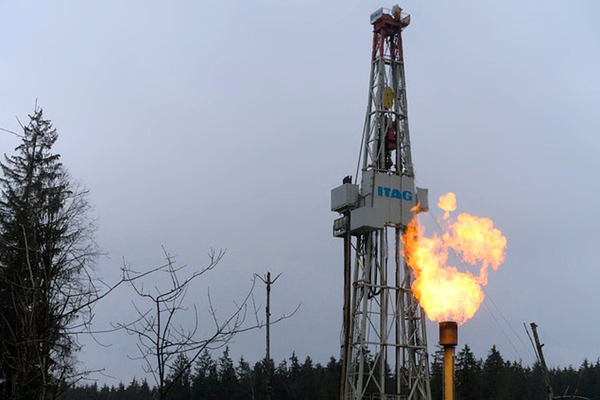- South Texas Students Meet Accordion Music Icons Los Tigres Del Norte In Edinburg Thanks To Khs America/Hohner Alianza Académica Initiative
- Fragile Planet Offers a Nighttime Wildlife Experience
- Falcons Soccer Off & Running
- Cameron County Receives Funds to Improve Two Parks
- Falcons Complete First Half of 32-6A
- School District to Help out Victims of California Wildfires
- Sand Castle Days Continued Despite Unexpected Weather
- Ready for District
- Discussion of Garbage Dumpster Rates, Agreements Between State & City on Highway Regulations, and More
- 31st Annual Shrimp Cook-Off is Right Around the Corner
Study Links Emissions From Fracked Wells to Low Birthweight Babies
- Updated: January 12, 2018

Natural gas wells are known to be sources of problematic air pollution and may be causing issues in developing fetuses. Photo: Pixabay
by Mark Richardson
ODESSA, Texas – Pregnant women living next to fracked gas wells in Texas and elsewhere are more likely to have a low birth-weight baby – that’s the finding in a new study from Princeton University.
The researchers compared the locations of parents’ homes to hospital records in Pennsylvania and found a strong correlation.
Princeton economics professor Janet Currie says they found a strong correlation – that the low birth weights were highly localized, much more likely to be found right next to the well sites.
“What is surprising is, we found a fairly large effect for people living very close; but by the time you got to two miles away, we did not detect any effect,” she says.
About 6,000 fracking oil and gas wells have been drilled in Texas since 2005. The industry argues that air pollution from gas wells and equipment such as compressor stations disperses quickly after it’s released. It also says the issue is well understood and regulated.
Low birthweight has long been considered an important indicator of later health problems.
Currie says based on previous research, they think the problem may be due to volatile organic compounds such as benzene, or small, soot-like particles such as those found in diesel exhaust.
Beth Weinberger, a public health consultant with the Environmental Health Project, says these kinds of dangerous air pollutants are well documented as common in the gas fields. And she says previous research has associated them with preterm births and similar issues.
“We know much of what’s in the emissions, and in each of the studies, the researchers have found associations between exposure to gas drilling and birth outcomes,” she explains.
The Princeton research suggests keeping drilling away from homes, through zoning or well set-back rules. Weinberger adds that even a portable air filter may help some homes reduce pollution levels.
